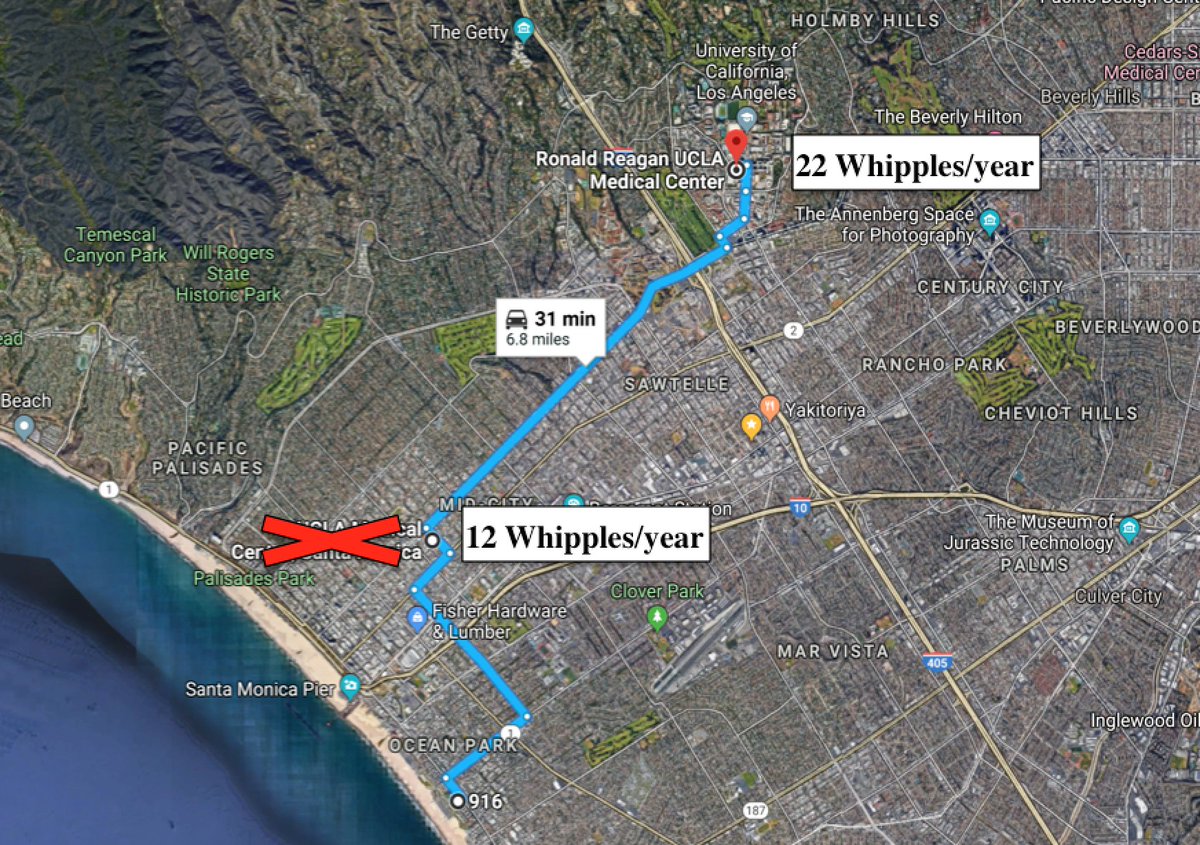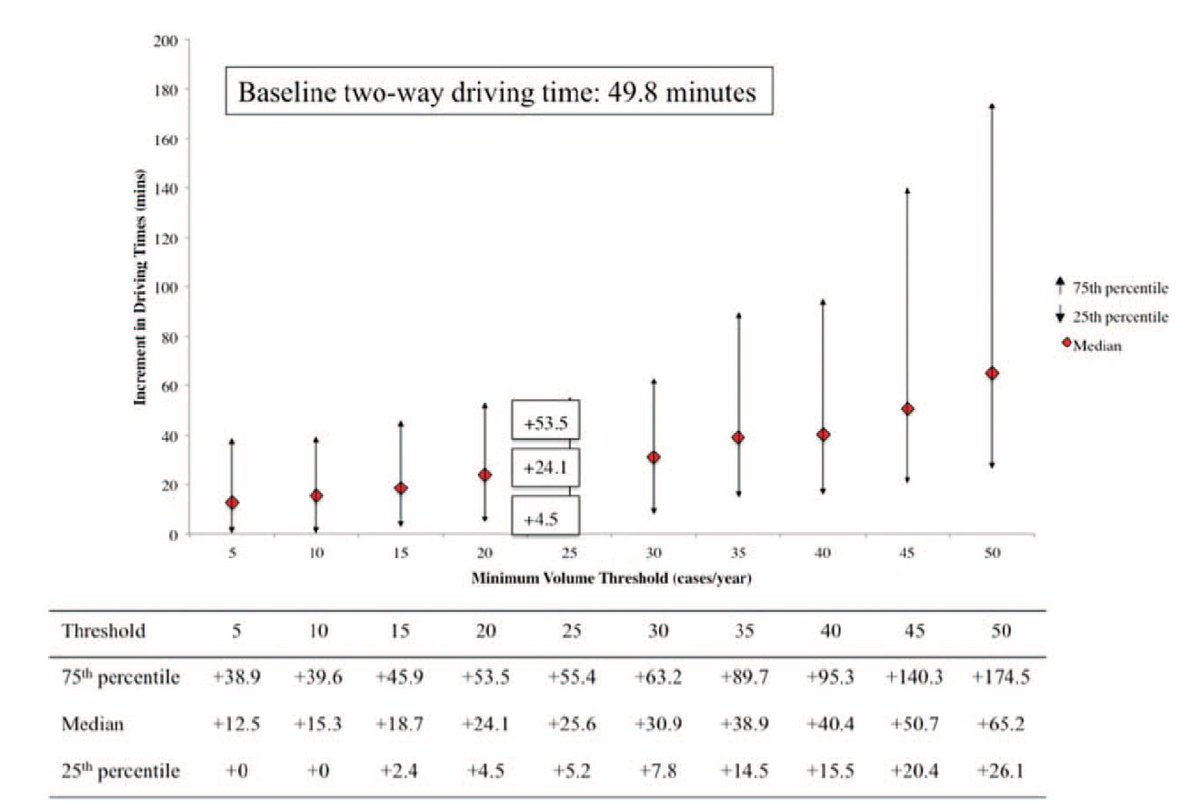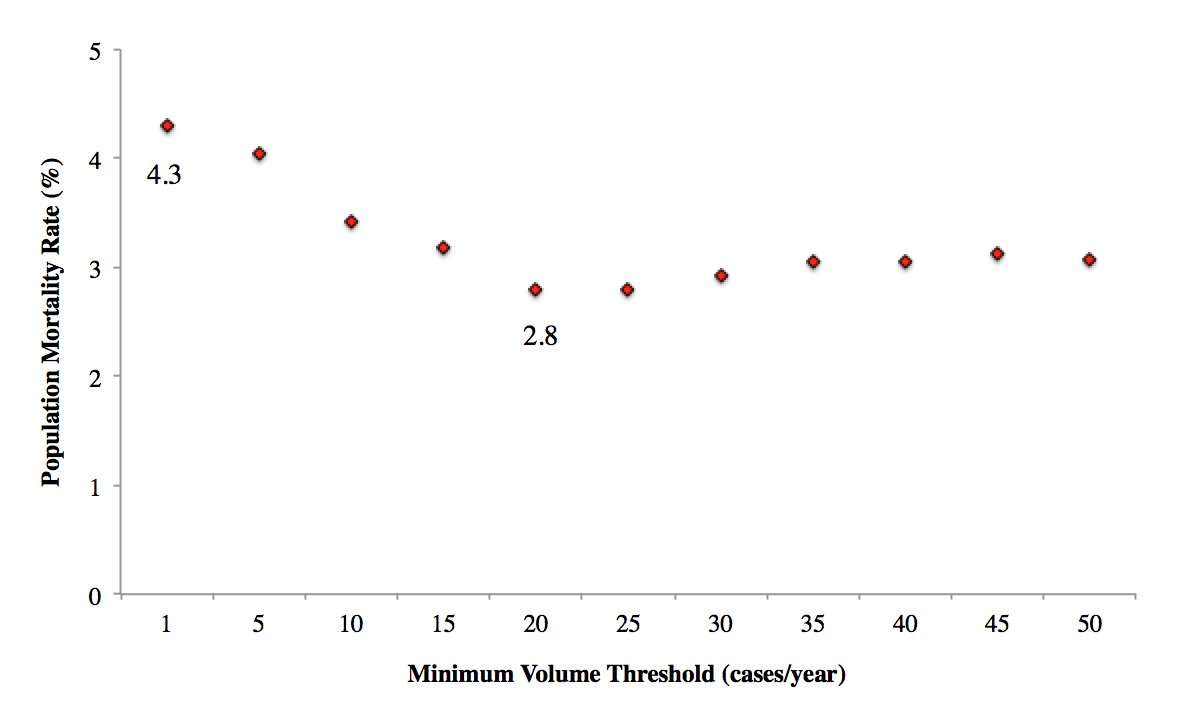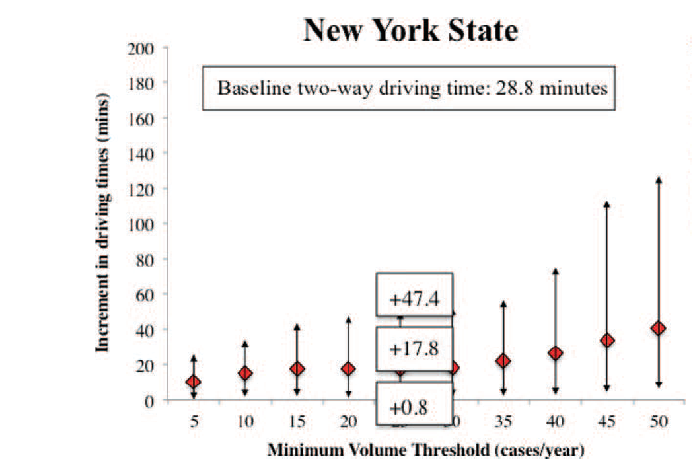(Thread) Centralization of complex operations would  outcomes...for pts who do get them. But how about pts who don't? How would it impact spatial access?
outcomes...for pts who do get them. But how about pts who don't? How would it impact spatial access?
We tried to investigate this by simulating a state-wide centralization policy.
@AnnalsofSurgery
https://journals.lww.com/annalsofsurgery/Fulltext/9000/Simulated_Volume_Based_Regionalization_of_Complex.94944.aspx
 outcomes...for pts who do get them. But how about pts who don't? How would it impact spatial access?
outcomes...for pts who do get them. But how about pts who don't? How would it impact spatial access?We tried to investigate this by simulating a state-wide centralization policy.
@AnnalsofSurgery
https://journals.lww.com/annalsofsurgery/Fulltext/9000/Simulated_Volume_Based_Regionalization_of_Complex.94944.aspx
In an elegant analysis by @DiazAdrian10 @timpawlik, 1/4 of patients undergoing a hepatectomy bypassed a high-volume hospital to receive care at a low-volume hospital.
So obviously, there's some room for policy to centralize procedures. But by how much? https://link.springer.com/article/10.1007%2Fs11605-019-04501-9
So obviously, there's some room for policy to centralize procedures. But by how much? https://link.springer.com/article/10.1007%2Fs11605-019-04501-9
We used CA's state database and identified pts undergoing pancreatectomy from 2005-2014, & use @googlemaps 's API to obtain driving times (real roads & traffic).
We then eliminated hospitals doing <20 pancreatectomies/year, & redirected to next closest hospital. Example below:
We then eliminated hospitals doing <20 pancreatectomies/year, & redirected to next closest hospital. Example below:
We then recalculated the population impact on driving times based on different thresholds used, & resulted as  .
.
While medians are important, key to pay attention to 75th percentile too. Because those 25% are always the disenfranchised & > vulnerable population, disparities.
disparities.
 .
.While medians are important, key to pay attention to 75th percentile too. Because those 25% are always the disenfranchised & > vulnerable population,
 disparities.
disparities.
It's resultant impact on mortality rates (flip side of the coin)? As below.
So based on the numbers, clearly there isn't any additional benefit to centralizing beyond 20 cases/year as it comes at the expense of spatial access.
For California, 20 cases/year was the magic #.
So based on the numbers, clearly there isn't any additional benefit to centralizing beyond 20 cases/year as it comes at the expense of spatial access.
For California, 20 cases/year was the magic #.
But how generalizable is this? We used NY's dataset and performed the same simulation, & found this.
Clearly tells a completely different story. Just like translational sciences, policy needs to be tailored to local needs as well (personalized policy?).
Clearly tells a completely different story. Just like translational sciences, policy needs to be tailored to local needs as well (personalized policy?).
In fact, @KyleSheetz & Massarweh recently had a nice viewpoint piece in @JAMA_current that points out issues with current centralization efforts & policies.
Beyond affecting access for vulnerable pt population, it takes away patient's autonomy. https://ja.ma/3eSr67q
Beyond affecting access for vulnerable pt population, it takes away patient's autonomy. https://ja.ma/3eSr67q
Lots of potential solutions. @KyleSheetz & @DrHariNathan have also shown that within-hospital-system centralization is a feasible means of improving outcomes while minimizing impact on spatial access. https://ascopubs.org/doi/full/10.1200/JCO.18.02035?url_ver=Z39.88-2003&rfr_id=ori%3Arid%3Acrossref.org&rfr_dat=cr_pub++0pubmed#.Xv4Aph9rCjo.twitter
But little is known about patients' & caregivers' considerations and selection process when selecting hospitals for care.
Implementation of surgical policies need to be patient centric to preserve access to high-quality care that is consistent with their priorities & needs.
Implementation of surgical policies need to be patient centric to preserve access to high-quality care that is consistent with their priorities & needs.
To that end, we've performed a qual analysis of pts from diff settings to better understand pts decision-making, & hope to publish soon.
Spoiler: vol/outcomes typically on totem pole.
on totem pole.
Until then, look out for great work by @DiazAdrian10 @DrHariNathan @KyleSheetz in this space!
Spoiler: vol/outcomes typically
 on totem pole.
on totem pole.Until then, look out for great work by @DiazAdrian10 @DrHariNathan @KyleSheetz in this space!

 Read on Twitter
Read on Twitter







